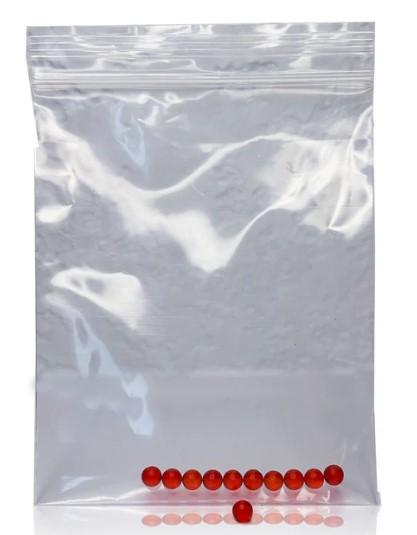

Health
What Are Nutraceuticals? A Comprehensive Guide
Introduction:
Have you ever heard of nutraceuticals? Chances are, you might not have, or maybe you just haven’t heard the full story. Here’s the thing: nutraceuticals are becoming more and more popular lately, but that doesn’t mean they’ve been around for a long time.
You might have seen them advertised online or in markets, and if you’re like me, you probably have a ton of questions about them. What are they exactly? Are they dangerous? Do they work?
This guide will tell you everything you need to know about nutraceuticals: what they are, how they work, and why they’re important. We hope that by the end of this article, you’ll be able to make an informed decision on whether nutraceuticals are right for you. So let’s get started!
What Are Nutraceuticals and How Do They Differ From Nutritional Supplements?
If you’re looking to improve your diet and overall health, you may have heard of nutraceuticals. But what are nutraceuticals and how do they differ from nutritional supplements?
Nutraceuticals are a type of nutritional supplement designed to provide additional health benefits beyond basic nutrition. They typically contain natural ingredients such as vitamins, minerals and herbs, while also including other compounds such as antioxidants, probiotics and plant extracts. Nutraceuticals are often formulated to target specific health needs such as aiding with digestion or providing immune support.
Unlike some nutritional supplements which contain artificial additives or fillers, nutraceuticals are designed to offer the highest quality, natural ingredients that are the most beneficial for your health. Plus, they typically come in forms other than pills or tablets—from teas and elixirs to powders and more—allowing you to get nutrition from various sources in convenient ways.
The key difference between nutraceuticals and nutritional supplements is that the former is formulated for targeted benefits beyond basic nutrition. Ultimately, it’s up to you to decide what type of supplement is best for you and your individual needs!
Types of Nutraceuticals and Their Different Uses:
Nutraceuticals are a broad and varied group of products that address specific health concerns or provide overall nutrition and wellness benefits. They come in many forms, such as dietary supplements, medicinal foods, functional foods, nutricosmetics, and even natural medicines.
Dietary Supplements are a type of nutraceutical that contain vitamins, minerals, amino acids, omega-3 fatty acids, probiotics, botanical extracts, enzymes and other nutrient substances. They can be found in pill form or powder form and are intended to supplement the daily diet.
Medicinal Foods are formulated with ingredients that have well-documented therapeutic benefits. Common medicinal foods include omega-3 fortified eggs and yogurts enhanced with probiotics.
Functional Foods provide added health benefits beyond basic nutrition. They can be a source of vitamins or minerals but do not have the same medicinal properties as medicinal foods. Examples of functional foods include omega-3-enriched eggs and low-fat dairy products fortified with calcium and vitamin D.
Nutricosmetics are dietary supplements formulated to enhance skin health and beauty from within by providing essential nutrients like vitamins A, C and E as well as essential fatty acids for healthy skin cells.
Finally, Natural Medicines contains plant extracts that may help to improve overall health or treat specific illnesses. These natural medicines typically come in liquid or capsule form and may include herbs like ginseng or kava root as well as homeopathic remedies like echinacea or goldenseal root extract.
Benefits and Potential Risks of Taking Nutraceuticals:
Nutraceuticals certainly have their benefits, but it’s also important to consider the potential risks of taking them. While most people who take nutraceuticals do not experience any serious issues, there is a possibility of side effects.
It’s important to note that people’s reactions to nutraceuticals can vary—and this can depend on individual pharmacokinetic differences, such as age and weight. So if you’re thinking of taking a nutraceutical, it’s always a good idea to speak to your doctor first and get an opinion.
Here are some potential risks associated with taking nutraceuticals:
- Interactions with other medications: Nutraceuticals may interact with other medications you’re taking and potentially increase their potency or reduce efficacy. It’s important to tell your doctor about all the medications you’re taking before starting any new supplement routine.
- Undesired side effects: In some cases, you might experience mild side effects when taking nutraceuticals such as stomach discomfort or headaches. It’s important to be aware of these and if they occur, stop using the product and seek advice from your physician.
- Allergic reactions: As with any supplement, there’s always a risk that you could be allergic or sensitive to an ingredient used in a nutraceutical product — so always check the label for ingredients before starting use.
How to Choose the Right Nutraceutical for You?
Choosing the right nutraceutical for you isn’t as complicated as it may seem. All you need to do is understand your own needs and find a product that matches them.
Know your needs:
It may help to keep a journal of what you eat, when and why. You can also make a list of any short-term and long-term health goals. This helps create an accurate picture of what sort of supplements you should consider.
Understand your options:
Now that you know your needs, take some time to research different nutraceuticals and their benefits. Different products contain different ingredients, so it’s important to know what is in each one and how it could benefit or harm you.
Consider plant-based options:
It’s no secret that plant-based ingredients are becoming more popular, and for good reason. Plant-based nutraceuticals don’t just provide essential vitamins and minerals but also support digestive health and provide powerful antioxidants!
Ask your doctor or healthcare provider:
It’s always a good idea to consult with a healthcare professional before starting any new supplement regimen. Your doctor will be able to review your dietary habits, lifestyle, medical history and other factors that should be taken into consideration when choosing the right nutraceuticals for you.
Remember—the right nutraceutical can work wonders for your body, so do your research and make an informed decision about which product is best for you!
Safe Ways to Consume Nutraceuticals:
You’ve probably heard of them, but what exactly are nutraceuticals, and what are some safe ways to consume them?
Generally speaking, nutraceuticals are products derived from food sources and contain health-promoting and disease-preventing properties. Nutraceuticals can come in a range of forms, such as dietary supplements, functional foods, and beverages. The key is that they contain bioactive components which have a beneficial effect on overall health.
Supplements:
The most popular way to get your daily nutraceutical needs is in the form of supplements. Supplements come in many forms including capsules or tablets that you can buy over the counter at any pharmacy or health food store. Many supplements are made from natural ingredients like herbs and minerals so you can be sure that you’re getting the safest product possible.
Functional Foods:
Functional foods are regular everyday items like fruits, vegetables, whole grains and dairy products that have added benefits beyond basic nutrition. For example, some functional foods have added probiotics to help with digestion or added omega-3 fatty acids to help with brain health. While all these foods should be part of a healthy diet anyway, the extra benefits make them even more valuable.
Beverages:
Lastly, some nutraceuticals come in the form of beverages like tea, coffee and juices. These drinks often contain natural ingredients like ginger, turmeric or green tea extract which has been proven to offer numerous health benefits such as improved metabolism and increased energy levels. In addition to this many nutraceutical beverages also include beneficial vitamins and minerals which can also work towards improving overall wellbeing.
No matter which way you choose to consume
FAQs About Nutraceuticals:
If you’re still a bit confused about nutraceuticals, here are a few FAQs to help clear things up.
What are the benefits of taking a nutraceutical?
Nutraceuticals provide an easy way for people to supplement their diets with vitamins, minerals, and other beneficial nutrients. Depending on the specific product, that could include anything from omega-3 fatty acids to probiotics. As such, nutraceuticals offer a range of potential health benefits, from boosting energy levels to aiding in weight loss.
Are all nutraceuticals safe?
Nutraceuticals are generally considered safe when taken as directed. But you should always look at the label and make sure you’re familiar with each component before taking any kind of supplement. Some people may have allergies or adverse reactions to certain ingredients, so it’s important to be sure of what you’re ingesting.
Should I take a nutraceutical if I’m already eating healthy?
That depends on your individual nutritional needs — but even if you’re eating healthy meals every day, there are still certain vitamins and minerals you might be missing out on from your diet alone. A nutraceutical can fill in those gaps and help ensure that your body is receiving all the nutrients it needs for optimum health and wellness.
Conclusion:
Nutraceuticals offer an attractive alternative for people looking for a way to improve their overall health. They are a broad category of supplements, covering an array of products from functional foods to dietary supplements. Nutraceuticals can provide health benefits, including improved digestion, cardiovascular health, and cognitive performance.
However, it’s important to remember that no supplement is a one-size-fits-all solution. Everyone is different, and it’s essential that you speak with a qualified healthcare professional to determine which nutraceuticals are right for you. With the right guidance, nutraceuticals may be an excellent way to complement your health and wellness routine.
Health
Exploring Terp Pearl Dab Kits: Choosing Between 4mm and 6mm Sizes

Terp pearl dab kits have revolutionized the dabbing experience, offering a more refined and efficient way to vaporize concentrates. A key aspect of these kits is the size of the terp pearls, with 4mm and 6mm being popular options. This guide will explore the differences between these sizes, their advantages, and how to choose the best one for your needs.
Understanding Terp Pearl Sizes
Terp pearls, or dab tools pearls, are small, spherical tools placed within the banger of a dab rig. They spin when air is drawn through the device, helping to distribute heat evenly. The size of these pearls, typically ranging from 4mm to 6mm in diameter, significantly impacts their performance.
4mm Terp Pearls: Precision and Quick Response
Smaller 4mm terp pearls are known for their quick heating and cooling properties. Due to their reduced mass, they reach the desired temperature rapidly and react quickly to heat changes. This makes them ideal for those who prefer short, potent bursts of flavor and vapor. Key benefits include:
- Quick Sessions: Efficient for fast dabbing experiences.
- Flavor Preservation: Excellent at retaining the delicate terpene profiles of concentrates due to rapid temperature changes. You can check terpenes for sale here.
- Controlled Vapor Production: Ideal for managing vapor density and intensity with precision.
6mm Terp Pearls: Enhanced Heat Retention and Smoothness
In contrast, 6mm terp pearls offer enhanced heat retention due to their larger mass. This is beneficial for extended dabbing sessions, as they maintain a consistent temperature longer, allowing for gradual and controlled vaporization of concentrates. Users of 6mm pearls typically enjoy:
- Extended Sessions: Suitable for longer, more leisurely dabbing experiences.
- Smooth Vapor: Larger pearls provide smoother, cooler vapor as they do not overheat quickly.
- Efficient Use of Concentrates: Helps evenly vaporize larger amounts of concentrate without needing to reheat.
Choosing the Right Size for Your Dabbing Style
Selecting the right size of terp pearls depends on your personal dabbing style and the characteristics you value in your sessions. Consider the following:
- Dabbing Frequency and Duration: If you enjoy quick, intense sessions, smaller pearls might be better. For longer sessions, larger pearls could be more suitable.
- Type of Concentrate: Thicker, more viscous concentrates might benefit from the sustained heat of larger pearls, while thinner ones might suit the quick heat changes of smaller pearls.
- Rig and Banger Size: Ensure that the pearls can move freely within your banger. Smaller bangers might not accommodate larger pearls as effectively.
- As tastes evolved, dabbers came to realize that vaporizing their high-grade oils on a blazing hot nail or surface might produce a lot of smoke and a massive lung expansion, but it was greatly degrading the flavor and even the true effects that they expected their experience to deliver.
- Once low-temp dabbing became the new jam, those same dabbers realized just how hard it was to time their hit in the ideal zone of a rapidly dropping temperature. Sure, an e-nail helps, but it always seemed as though a true low-temp dab left behind a half-vaped, gooey residue in your banger or nail. A cotton swab might clean most of it out, but what waste!
- What if you could just vape it down to the last drop instead? Well friends, that’s where Dab Beads and Terp Pearls come into play and, honestly, it’s pretty crazy that it took so long for us all to figure out this flavor-saving tech. With terp pearls you’ll truly be getting the most bang for your buck out of your top shelf dabs, vaping it all instead of swabbing up puddles of wasted leftovers.
Conclusion
Both 4mm and 6mm terp pearls offer unique benefits that can enhance your dabbing experience. Understanding the characteristics and advantages of each size will help you make an informed decision that aligns with your preferences and dabbing habits. Terp pearl dab kits highlight the customizable nature of dabbing, allowing you to fine-tune your sessions for optimal enjoyment and efficiency. Explore different sizes to discover which best suits your dabbing style!
Health
Wellhealth Ayurvedic Health Tips: Balancing Wellness in Today’s World

In the face of the ongoing global health crisis, prioritizing wellness has become more crucial than ever. As we navigate through these uncertain times, ancient wisdom such as Ayurveda offers invaluable insights and practices to maintain and enhance our health. In this article, we delve into the principles of Ayurveda and explore Wellhealth Ayurvedic health tips that can help us achieve a harmonious balance in mind, body, and spirit.
What is Ayurveda?
Ayurveda, often referred to as the “science of life,” is an ancient system of medicine that originated in India over 5,000 years ago. The word Ayurveda is derived from Sanskrit, where “Ayur” means life, and “Veda” means knowledge or science. At its core, Ayurveda emphasizes the holistic well-being of an individual, focusing on achieving a balance between the body, mind, and spirit to prevent illness and promote longevity.
So, what’s the deal with Ayurveda, you might wonder? Well, think of it as your ultimate guide to holistic living straight from ancient India. Ayurveda isn’t just about popping pills to fix your ailments; it’s more like a lifestyle roadmap that’s been around for over 5,000 years. Picture this: your body, mind, and spirit all in sync, vibing together like a well-oiled machine. That’s the Ayurvedic dream!
Okay, but what’s the big fuss about doshas? Imagine there are these three cosmic energies floating around inside you, playing tag with your health. Vata, Pitta, and Kapha – they’re like your personalized squad, each with its own vibe. And depending on which one’s running the show, your body might feel totally different. It’s like having three roommates who take turns being in charge of the thermostat!
Now, let’s talk about Agni – your body’s fiery furnace. This isn’t some Game of Thrones reference; it’s all about digestion and metabolism. Agni’s like your inner chef, breaking down everything you eat and turning it into fuel. Keep that fire burning bright, and you’ll feel like a million bucks. But if it fizzles out or goes rogue, well, let’s just say your stomach might stage a protest.
And Ojas? Think of it as your secret sauce for vitality and immunity. It’s like having a superhero shield, protecting you from all the nasty bugs and stress bombs life throws your way. Nourish your Ojas with good food, sleep, and maybe a sprinkle of meditation, and you’ll be practically invincible!
So, there you have it – Ayurveda in a nutshell. It’s all about finding your balance, tuning in to your body’s needs, and living your best, most harmonious life. Who knew ancient wisdom could be so cool, right?
Ayurvedic Doshas
Central to Ayurvedic philosophy is the concept of doshas, which are elemental energies that govern various physiological and psychological functions within the body. According to Ayurveda, there are three primary doshas: Vata, Pitta, and Kapha.
- Vata: Comprised of the elements air and ether, Vata governs movement, creativity, and communication. When in balance, Vata promotes vitality and flexibility. However, an imbalance can lead to anxiety, insomnia, and digestive issues.
- Pitta: Made up of the elements fire and water, Pitta governs metabolism, digestion, and transformation. A balanced Pitta fosters intelligence and courage, but excessive Pitta can manifest as irritability, inflammation, and digestive disorders.
- Kapha: Composed of the elements earth and water, Kapha governs structure, stability, and lubrication. When balanced, Kapha promotes strength and nurturing qualities. However, an excess of Kapha can lead to lethargy, weight gain, and respiratory problems.
Understanding one’s dominant dosha(s) can provide valuable insights into individual constitution and guide personalized lifestyle and dietary choices to maintain equilibrium.
Ayurveda Agni Or The Metabolic and Digestive Fire
Agni, often translated as “digestive fire,” is a fundamental concept in Ayurveda related to metabolism and digestion. It represents the body’s ability to process and assimilate nutrients from food while eliminating waste products efficiently. Maintaining a balanced Agni is essential for overall health and vitality.
According to Ayurveda, there are four types of Agni:
- Sama Agni: Balanced digestive fire, characterized by efficient digestion and elimination.
- Vishama Agni: Erratic digestive fire, leading to irregular digestion and fluctuating appetite.
- Tikshna Agni: Intense digestive fire, associated with strong hunger, but may lead to heartburn or acidity if excessive.
- Manda Agni: Weak digestive fire, resulting in slow metabolism and sluggish digestion.
Through mindful eating habits, including consuming warm, freshly cooked meals, avoiding overeating, and incorporating digestive spices such as ginger and cumin, one can support and strengthen Agni for optimal health.

Ayurveda Ojas or Vitality
Ojas, often described as the essence of vitality and immunity, plays a crucial role in Ayurvedic physiology. It represents the subtle energy that governs overall health, resilience, and longevity. When Ojas is abundant, it confers physical strength, mental clarity, and emotional stability.
To cultivate and preserve Ojas, Ayurveda recommends:
- Nourishing Foods: Consuming wholesome, nutrient-dense foods that are easy to digest, such as fresh fruits, vegetables, whole grains, and healthy fats.
- Restorative Practices: Engaging in rejuvenating activities like meditation, yoga, and adequate sleep to replenish energy reserves and reduce stress.
- Herbal Support: Incorporating adaptogenic herbs like ashwagandha, tulsi, and shatavari can help bolster Ojas and enhance overall vitality.
Wellhealth Ayurvedic Health Tips: Finding the Ideal Balance
Incorporating Ayurvedic principles into our daily lives can empower us to achieve holistic well-being and navigate the challenges of modern living with grace and resilience. Here are some Wellhealth Ayurvedic health tips to promote balance and vitality:
- Eat Mindfully: Pay attention to the quality, quantity, and timing of your meals. Opt for fresh, seasonal foods and avoid processed or excessively spicy foods that may imbalance the doshas.
- Stay Hydrated: Drink warm water throughout the day to support digestion and detoxification. Avoid ice-cold beverages, which can dampen Agni and impair digestion.
- Prioritize Digestion: Allow time for proper digestion between meals, avoiding snacking or heavy meals late at night. Incorporate digestive spices like turmeric, ginger, and fennel into your cooking.
- Practice Daily Routine: Establish a regular daily routine that aligns with your natural biorhythms, including consistent sleep and wake times, meals, and self-care practices.
- Mind-Body Awareness: Cultivate awareness of your thoughts, emotions, and bodily sensations through mindfulness practices such as meditation, pranayama, or gentle movement exercises.
- Embrace Seasonal Living: Adapt your lifestyle and dietary choices according to the changing seasons to maintain harmony with nature’s rhythms and prevent seasonal imbalances.
- Stay Connected: Foster meaningful connections with loved ones, community, and nature to nurture emotional well-being and resilience in challenging times.
By integrating these Wellhealth Ayurvedic health tips into your lifestyle, you can embark on a journey towards greater vitality, balance, and harmony in mind, body, and spirit.
Conclusion
In the pursuit of optimal health and wellness, embracing the timeless wisdom of Ayurveda can offer profound insights and practical guidance. By understanding the principles of doshas, Agni, Ojas, and incorporating Wellhealth Ayurvedic health tips into our daily lives, we can cultivate resilience, balance, and vitality even in the face of adversity. As we navigate through these unprecedented times, let us harness the power of Ayurveda to nurture our well-being and thrive in body, mind, and spirit.
FAQs
- What is Ayurveda, and how does it contribute to overall well-being?
- Ayurveda is an ancient system of medicine that originated in India over 5,000 years ago. It emphasizes holistic well-being by balancing the body, mind, and spirit. Ayurvedic principles guide lifestyle, dietary choices, and practices to prevent illness and promote longevity.
- What are Ayurvedic doshas, and how do they affect health?
- Ayurvedic doshas, namely Vata, Pitta, and Kapha, are elemental energies that govern various physiological and psychological functions within the body. Understanding one’s dominant dosha(s) provides insights into individual constitution and guides personalized health recommendations.
- How can I determine my dominant dosha(s)?
- Various online quizzes, self-assessment tools, or consultations with Ayurvedic practitioners can help determine your dominant dosha(s) based on physical, mental, and emotional characteristics.
- What is Agni in Ayurveda, and why is it important for digestion and metabolism?
- Agni, often referred to as the metabolic and digestive fire, represents the body’s ability to process and assimilate nutrients from food while eliminating waste products efficiently. Maintaining balanced Agni is crucial for optimal digestion, metabolism, and overall health.
- How can I support and strengthen my Agni?
- Adopting mindful eating habits, consuming warm, freshly cooked meals, avoiding overeating, and incorporating digestive spices such as ginger and cumin can help support and strengthen Agni.
- What is Ojas, and how does it contribute to vitality and immunity?
- Ojas is considered the essence of vitality and immunity in Ayurveda. It represents subtle energy that governs overall health, resilience, and longevity. Cultivating Ojas through nourishing foods, restorative practices, and herbal support enhances vitality and immunity.
- What are some practical Wellhealth Ayurvedic health tips for everyday life?
- Wellhealth Ayurvedic health tips include mindful eating, staying hydrated, prioritizing digestion, establishing a daily routine, practicing mind-body awareness, embracing seasonal living, and fostering meaningful connections with loved ones and nature.
- Are Ayurvedic health tips suitable for everyone?
- While Ayurvedic principles are generally safe and beneficial for most individuals, it’s essential to consider individual differences and consult with a qualified Ayurvedic practitioner, especially if you have specific health concerns or medical conditions.
- How can I integrate Ayurvedic practices into my existing health routine?
- Start by incorporating small changes gradually, such as adjusting your diet, incorporating mindfulness practices, and adopting a regular daily routine aligned with your natural biorhythms. Experiment with different Ayurvedic practices to find what works best for you.
- Where can I find reliable information and resources about Ayurveda and Wellhealth Ayurvedic health tips?
- Reliable sources for Ayurvedic information include reputable books, websites of recognized Ayurvedic institutions, and consultations with certified Ayurvedic practitioners. Wellhealth Ayurvedic health tips may also be available through reputable health and wellness platforms. Always verify the credibility of the source before implementing any health advice.
Health
How to Be a Better Therapist

The world of mental health is constantly evolving. As a therapist, it’s crucial that you are always on top of your game, always learning, and always challenging yourself to be better. This helps ensure you provide clients with the best possible care to help them live happy, healthy lives with good mental health and well-being. Whether you are newly qualified or a seasoned professional, here are some ways to become a better therapist.
Specialize
There’s nothing wrong with being a general therapist but having a specialism (even if you don’t choose to practice it) is a fantastic way to hone your skills and become an expert in your field. Studying for a masters in marriage and family therapy can be a great way to further your career.
Study
To be a better therapist, you need to keep learning. This could involve taking a course so that you can specialize in a specific field, but it also includes things like reading new studies and materials, going to seminars, attending workshops, and sharing knowledge with colleagues and other people in the field.
Practice Empathy
Empathy is an incredibly important skill for all therapists, but while many start out filled with empathy and compassion, it can dwindle over time. Practicing empathy in your day-to-day life and challenging yourself to put yourself in other people’s shoes every day, in various situations, will help keep your empathy skills fresh and active.
Practice Your Listening Skills
Listening is another key skill, and perhaps the most important one of all. Check yourself after every conversation, both at work and in your personal life. Did you interrupt? What did you learn from the conversation? Were there any clues in the speaker’s tone or body language that could help you gain more information?
Improve Cultural Competence
Culture can have a big impact on lifestyle, feelings, and worries. People from different cultures may respond to stressors and events differently, so understanding cultural variables will make you a better therapist who is able to offer a tailored service.
To improve your cultural competence, you should:
- Educate yourself. Read, attend workshops, and spend time with people from other cultures to learn more.
- Speak to your clients about their cultures and backgrounds. It’s ok to ask questions.
- Avoid assumptions and challenge your own stereotypes. Try to recognize differences within individual cultures and get to know each client before making assumptions about how their culture affects their mental health.
Create a Judgement Free Environment and Keep an Open Mind
It’s easy to become judgmental when you have seen and heard a lot. Make sure you look at each client individually while learning from past experiences.
Maintain Boundaries
Another thing that can creep in is issues with boundaries, especially with long-term clients. Some of the best ways to maintain boundaries are:
- Avoid dual relationships. If you are someone’s therapist, that’s all you should be. Don’t let clients become friends, and don’t be tempted to treat people you’ve met in other areas of life.
- Be strict with timing. Make sure each session has a clear start and finish time.
- Be professional in everything from how you dress to how you speak to people.
- Use office layout to create a physical distance.
Over time, in every career, we can start to take things for granted. We can develop preconceptions, our standards can slide, and the little details, like how we dress and our body language, can become less polished. To be a better therapist, it’s important that you are constantly learning and pulling yourself up on your ideas and behaviors.

 Business3 years ago
Business3 years agoFind out how useful a loan is without a credit check

 Business2 years ago
Business2 years agoBest Workplace Upgrade

 Digital Marketing3 years ago
Digital Marketing3 years agoIs YouTube Marketing Capable of Taking Your Business to the Next Level?

 Food3 years ago
Food3 years ago5 Best and Worst Foods for Boosting Metabolism

 Business3 years ago
Business3 years agoContent Creation Tips Every Digital Manager Needs to Know

 Travel3 years ago
Travel3 years agoA Quick Traveler’s Guide to Malaga – You Can’t-Miss

 Lifestyle3 years ago
Lifestyle3 years agoHow to Choose the Best Air Fryer for Me

 Fashion3 years ago
Fashion3 years ago8 Top Leather Jacket Picks To Try Out This Year















